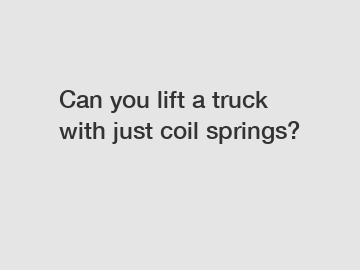Are brake pads the same as brake shoes?
In the realm of automotive maintenance, ensuring the optimal performance of your vehicle's braking system is paramount. One common source of confusion among vehicle owners revolves around the interchangeability of brake pads and brake shoes. Are these components truly the same, or do they serve different purposes? In this comprehensive guide, we delve into the nuances, shedding light on the distinctions between brake pads and brake shoes.
Understanding Brake Pads
What Are Brake Pads?
Brake pads are crucial elements in a vehicle's braking system, designed to create friction against the brake rotors, thereby slowing down or stopping the vehicle. Typically composed of a friction material bonded to a metal backing plate, these pads play a pivotal role in converting kinetic energy into thermal energy, dissipating heat generated during the braking process.
Functionality of Brake Pads
The primary function of brake pads is to provide a high-friction surface that interacts with the brake rotors. This friction facilitates the deceleration of the vehicle, ensuring a prompt and controlled stop. Modern brake pads are engineered with a variety of materials, including semi-metallic, ceramic, and organic compounds, each offering distinct advantages in terms of performance and longevity.
Deciphering Brake Shoes
Defining Brake Shoes
On the other hand, brake shoes serve a similar purpose but are employed in a different braking system – the drum brake system. Unlike brake pads, which clamp onto the brake rotors, brake shoes press against the inner surface of a drum, creating friction and causing the vehicle to slow down.
Functionality of Brake Shoes
Similar to brake pads, brake shoes are crafted with a friction material bonded to a metal backing plate. When the brake pedal is engaged, the wheel cylinder pushes the brake shoes outward against the drum, initiating the braking process. This design is prevalent in the rear braking systems of many vehicles.
Key Differences
Now that we've outlined the basic functions of both brake pads and brake shoes, let's delve into the key differences that set these components apart.
1. Application
Brake Pads: Primarily used in vehicles equipped with disc brake systems.
Additional resources:
What are the advantages of buying 7420518617 in the purchase stage?
What do the numbers on a oil seal mean?
How much should a car starter cost?
Which modern vehicles could benefit from VKBA5455?
What are the top 10 e-scooters for purchase at 45 km/h?
Are the shims on brake pads necessary?
Unveiling the Affordable Prices of Car Starter MotorsBrake Shoes: Commonly found in the drum brake systems of various vehicles.
2. Contact Surface
Brake Pads: Engage with the outer surface of the brake rotor.
Brake Shoes: Press against the inner surface of the brake drum.
3. Braking Mechanism
Brake Pads: Clamp onto the spinning brake rotor to create friction.
Brake Shoes: Press outward against the stationary brake drum to generate friction.
Choosing the Right Component
The decision between brake pads and brake shoes ultimately depends on your vehicle's braking system. Disc brake systems typically utilize brake pads, while drum brake systems employ brake shoes. Understanding your vehicle's brake configuration is crucial for optimal performance and safety.
Conclusion
In conclusion, while both brake pads and brake shoes play integral roles in a vehicle's braking system, they are distinct components tailored for specific applications. The confusion surrounding their interchangeability is dispelled by recognizing the differences in their design, functionality, and application. By comprehending the unique roles each component plays, you empower yourself to make informed decisions when it comes to maintaining and upgrading your vehicle's braking system.
Additional resources:What are the advantages of coil springs for medical equipment in the purchase stage?
Accelerate Your Commute with Adult-Friendly Electric Scooters
The Ultimate Guide to Using Electric Marine Winches
MG 550 MG6 Front Brake Discs: Why Do They Wear Out Quickly? Tips to Maximize their Lifespan
Are abutment clips necessary?
Which hot pressed car floor mat offers the best value for its price?
Revolutionizing Railway Safety: Are Printed Coil Springs the Future?
79
0
0
Related Articles
-
76
0
0
-
66
0
0
-
80
0
0
-
77
0
0
-
99
0
0
-
70
0
0
-
75
0
0
-
71
0
0










Comments
All Comments (0)